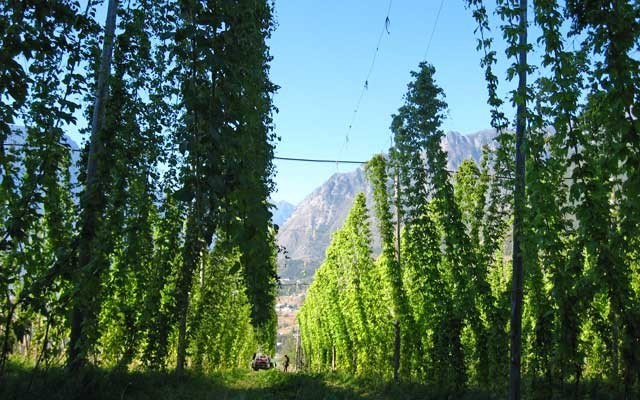It's hardly news that B.C.'s craft beer industry is thriving, with new breweries popping up on a regular basis.
And with boutique brewers focused on bottling high-quality suds that highlight the best that B.C.'s craft scene has to offer, it only makes sense that we're starting to see related industries, like hop farming, begin to take root. In fact, with a smattering of growers in the Sea to Sky and surrounding area, the region could become a hotbed for hops production as it was in at the dawn of the 20th century.
"The more local hops B.C. can produce, the more indigenous B.C. craft beer can become," writes Jon O'Donnell, the owner of Pemberton's Hops Connect, in an email.
"B.C. craft breweries are already producing quality products, so if Sea to Sky hop growers can provide quality local ingredients at competitive prices, it will just further help B.C. craft brewers in procurement and in creating distinctive craft beers."
One such distinctive brew that stands to grow in popularity with more regional farmers in B.C. is fresh, or wet, hop beer. Harvested every September, the beer is made from freshly cut hops that must be used within 24 hours. This lends a subtle vegetal flavour that is making fresh-hop beer a popular choice for brewers in the know.
Between Lillooet, Pemberton and Squamish, the region's diverse climate conditions are well suited to hop farming, explains Sam Quinlan, owner of Hooh Hops in Lillooet.
"The Sea to Sky is a real smattering of different growing regions," he says. "What you see in Squamish is very different from what you have in Lillooet; being the hottest place in Canada, its ability to grow hops has a much higher potential. Hops like dry and hot generally speaking, but hops also do really well in more coastal, mild climates."
Even with the right growing conditions, however, establishing a hop farm can prove extremely challenging and costly, especially considering how cheap it is for brewers to source processed hops from Europe — just ask Brackendale resident Mike Holmes, owner of Squamish Valley Hop Company, who is currently working with his girlfriend Lizzy Delaney to set up a one-acre yard in Squamish.
"(The biggest challenge) is probably the cost to set up a one-acre hop yard, it's just really expensive," he says. "You have first your plant stock you have to buy, and ours is all certified organic, and they charge a premium for that. We have the poles; we have 96, 22-foot poles we're using for the one acre. Then you have a lot of braided cable, a lot of wire, a lot of string — basically quite a lot of hardware."
It could take years for hop farmers to determine what makes this region's hops distinct, explains Quinlan, similar to how European grape growers spent generations discovering what qualities a particular grape lent to its varietal. Still, Quinlan is hopeful more craft brewers will see the value of sourcing hops locally.
"It's a challenge to start a new industry so young," he says. "In order for it to remain viable, brewers have to select or prefer buying local hops because that's the only way the industry can survive if it is going to stay in the Sea to Sky area over the long term."




